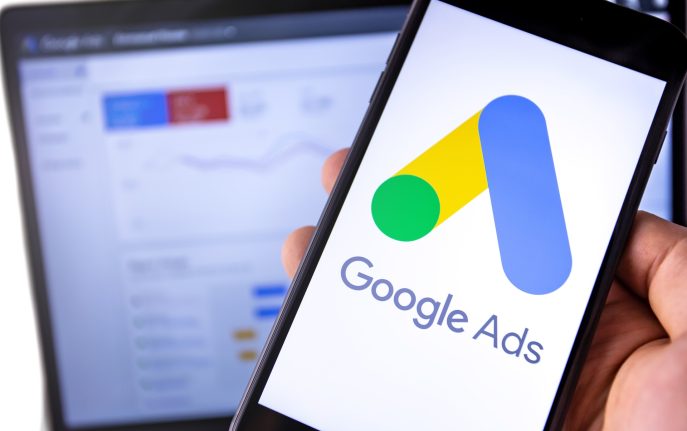If you own a small business, you’re probably thinking that marketing your business is going to be a complicated, expensive and time-consuming task. It doesn’t have to be that way, that is, if you know what to do and how to go about it. Below are 5 simple marketing tips for small business that you can easily implement for your business.
Using a marketing plan template is essential for organizing your goals, strategies, and budget, ensuring your marketing efforts are structured and effective.
Set up a blog for your business
If you’ve not realized yet that a blog is a great addition for any business’s marketing strategy, then you need to have a re-think. Blogs are great ways to share your expertise, inspirations and news with your customers and potential prospects. For an effective marketing strategy, you and your team need to get seriously involved with blog article writing. One of the most difficult parts of blogging is getting started. You should set out some hours for developing your blog and content plan. Your plan should include things such as; focus subject areas, how often to post, how to generate ideas for your stories, where to sources images from, and finally creating the blog and familiarizing yourself with your website’s Content Management System (CMS).
When creating content for your blog, focus on search engine optimization to attract more traffic and reach your target market. High quality content and high quality images are key to engaging potential customers and establishing your authority. Featuring user generated content and customer testimonials in your blog posts can also build trust and credibility with your audience.
Offer a freebie
A lot of people like freebies or “give-aways”. So, give something away! However, you should know that there are approaches to giving freebies. One of them is running a competition and then making the criteria for entry a purchase of whatever you’re offering or signing up to your newsletter. The price for the competition winners could be anything from giving out free products to a set value or a discount voucher to your products. If you have a new product you’ve just launched, then giving away free samples is a good way of creating awareness for the product.
Loyalty programs and a well-designed loyalty program can encourage repeat business and customer retention by rewarding your loyal customers and turning them into brand advocates.
Start sending out e-newsletters
Sending out newsletters to your customers allows you to keep them abreast of what’s going on with your business. You can include business updates, recent blog posts or special offers about some of your products with the newsletters. There a lot of email service providers with a free option if you don’t want to subscribe to a paid one straight away.
Running email campaigns and developing email campaign strategies are effective ways to nurture leads and engage your target customers, helping to drive conversions and build long-term relationships.
Be active in your local community
One good way of effectively growing your customer base is getting to know the organizations, businesses, and people that are living and working in your community. If you have a good product and/or service, people around you will certainly appreciate your business offers and subsequently support it.
Participating in local events, trade shows, and engaging with local businesses and markets can help you expand your reach and build valuable connections. Handing out business cards and using a business card as a networking tool at these events can leave a lasting impression. Monitoring market trends and understanding your target market are crucial for business growth and staying ahead of competitors.
Here are some ways of building relationship with your community:
- Introduce yourself to them
- Support their business and refer them to your customers when necessary
- Be a member of your local commerce or retailer’s association.
- Advertise your business on social media
The social networking platforms are great ways for small businesses to create awareness about their products and/or services. There are different social media platforms, so you have to choose the one that will be most appropriate for your type of business. If your business is about travel & tourism, jewelry, clothing, and fashion, then Instagram works best because these are visually appealing products. Facebook ads can help you in targeting new local customers while LinkedIn works best for a B2B audience.
Optimizing your social media posts and using various social media channels are essential for effective online marketing. Leveraging influencer marketing and Google Ads can help you reach your target audience more efficiently. Setting up and optimizing your Google Business Profile and focusing on local SEO are important for increasing your local visibility, especially for local businesses. Showcasing your visual brand and brand’s personality on platforms like Instagram can help you stand out. Maintaining a well articulated brand, strong brand identity, and consistent brand voice across all marketing plays builds trust and recognition. Highlighting your unique selling proposition differentiates your business in competitive markets. Adopting new marketing strategies and having a dedicated marketing team, even if small, can drive business growth. Providing exceptional service can encourage word of mouth referrals and increase sales. Online marketing and search engine optimization are key to attracting more traffic and potential customers. Creating content and using high quality images can enhance your marketing materials and engage your audience. Your business plan should include strategies for monitoring market trends and reaching your target customers.
If you’re looking to get your business started with a few new marketing solutions and want a quick and simple loan solution to get going, talk to Unsecured Finance Australia about how we can help you meet your business finance needs.
1. Define Your Marketing Goals
Before diving into any marketing activities, it’s essential for small business owners to define clear marketing goals. Setting specific, measurable, achievable, relevant, and time-bound (SMART) goals gives your marketing strategy direction and purpose. Whether you want to increase your website traffic, boost social media engagement, generate more leads, or drive sales, having well-defined marketing goals helps you focus your marketing efforts and make the most of your resources.
By outlining your marketing goals, you can create a marketing plan that aligns with your overall business objectives. This approach ensures that every marketing activity you undertake is purposeful and contributes to your business’s growth. For example, if your goal is to grow your social media following by 20% in six months, you can tailor your content and campaigns to achieve that target. Remember, clear marketing goals not only keep you on track but also make it easier to measure your success and adjust your marketing strategy as your business evolves.
2. Understand Your Audience Through Market Research
Knowing your target audience is the foundation of any successful marketing strategy. Market research allows small businesses to identify their potential customers, understand their needs, and discover what motivates their buying decisions. By gathering information about your target audience’s demographics, preferences, and behaviors, you can create detailed buyer personas that guide your marketing efforts.
Market research also helps you choose the right marketing channels—whether that’s social media platforms, email marketing, or participating in local events—so your marketing materials reach the people most likely to become customers. Staying informed about market trends and your competitors’ activities enables you to adapt your marketing tactics and stay ahead in your industry. Investing time in market research ensures your marketing strategies are effective, relevant, and tailored to your audience, giving your small business a competitive edge.
3. Build a Strong Online Presence with a Functional Website
In today’s digital world, a professional and functional website is a must-have for small businesses. Your website acts as your online storefront, providing potential customers with essential information such as your products or services, business hours, and contact details. A user-friendly, mobile-optimized website makes it easy for visitors to navigate and find what they need, increasing the chances they’ll become loyal customers.
Optimizing your website for search engines (SEO) helps your business appear in search results, driving more organic traffic to your site. You don’t need to be a web developer to get started—tools like Wix and Canva offer simple solutions for creating a visually appealing website that reflects your brand’s personality. Your website can also serve as a hub for your marketing efforts, integrating with your social media marketing, email marketing, and content marketing strategies to support your business’s growth.
4. Measure Success by Setting Key Performance Indicators (KPIs)
To ensure your marketing strategies are working, it’s important to set Key Performance Indicators (KPIs) that track your progress. KPIs are measurable values that show how effectively your marketing efforts are achieving your marketing goals. For small business owners, common KPIs include website traffic, social media engagement (likes, shares, comments), email open and click-through rates, conversion rates, and customer retention.
Regularly monitoring these KPIs helps you understand what’s working and where you can improve. Tools like Google Analytics and social media insights make it easy to gather and analyze this data. By reviewing your KPIs, you can adjust your marketing plans, allocate your marketing budget more effectively, and make informed decisions that drive your business forward. Setting and tracking KPIs ensures your marketing tactics are always aligned with your business objectives.
5. Encourage Growth with a Referral Program
One of the most effective ways for small businesses to grow is through referral marketing. A referral program rewards your existing customers for bringing in new customers, turning your happy customers into brand advocates. This word-of-mouth marketing is incredibly valuable because people trust recommendations from friends and family more than traditional advertising.
You can design your referral program to offer discounts, free products, or special perks to both the referrer and the new customer. Not only does this help expand your customer base, but it also strengthens customer loyalty and encourages repeat business. By making it easy and rewarding for customers to share their positive experiences, your small business can achieve consistent growth without spending a huge budget on advertising campaigns.




